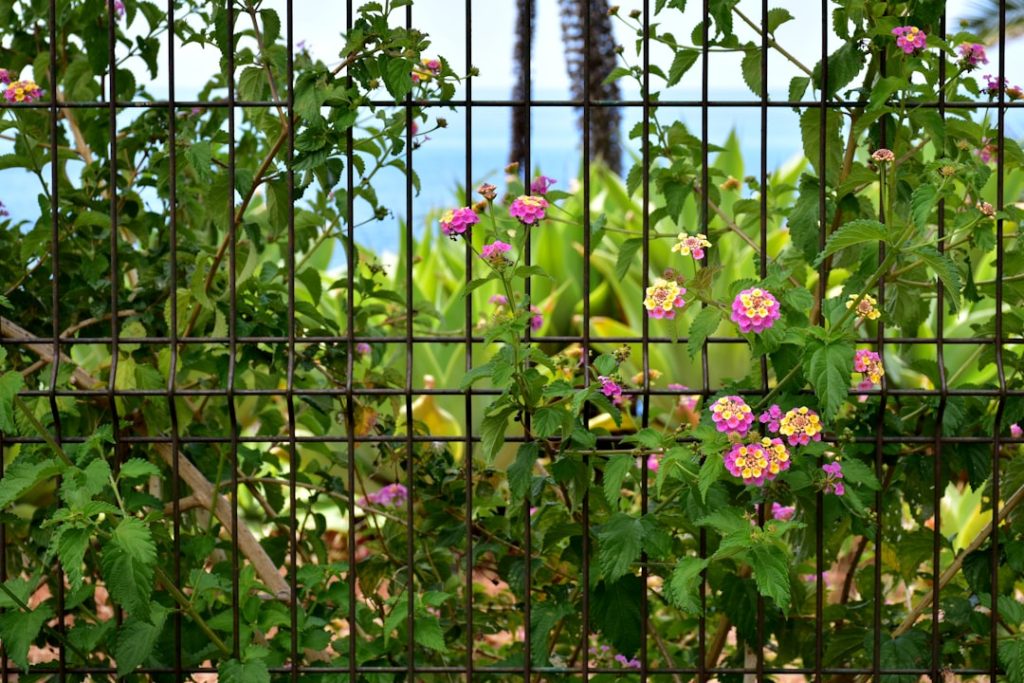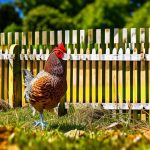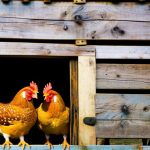Chickens exhibit natural curiosity and inquisitiveness, frequently engaging in pecking and scratching behaviors to search for food. They are often drawn to flower beds and gardens, perceiving these areas as potential food sources. To effectively prevent chickens from damaging flower beds, it is essential to comprehend their behavioral patterns.
By recognizing their innate instincts and tendencies, one can more easily implement strategies to deter them from harming plants and flowers. As social animals, chickens tend to follow the lead of dominant flock members. Consequently, if one chicken discovers access to a flower bed, others are likely to imitate this behavior.
Furthermore, chickens are creatures of habit, consistently returning to locations where they have previously found food or shelter. Understanding these behavioral traits emphasizes the importance of establishing barriers and utilizing natural deterrents to protect flower beds from chicken-related damage.
Table of Contents
- 1 Creating barriers for flower beds
- 2 Using natural deterrents
- 3 Training chickens to stay away
- 4 Providing alternative areas for chickens to roam
- 5 Regular maintenance and supervision
- 6 Seeking professional advice
- 7 FAQs
- 7.1 What are some effective methods for keeping chickens out of my flower beds?
- 7.2 Are there any plants that can help repel chickens from flower beds?
- 7.3 Is it safe to use chicken wire or other physical barriers to keep chickens out of flower beds?
- 7.4 Are there any natural deterrents that can be used to keep chickens out of flower beds?
- 7.5 How can I train my chickens to stay out of my flower beds?
Key Takeaways
- Chickens are naturally curious and will scratch and peck at flower beds, causing damage to plants.
- Creating physical barriers such as fences or netting can help protect flower beds from chicken damage.
- Natural deterrents like citrus peels, coffee grounds, or cayenne pepper can be used to discourage chickens from entering flower beds.
- Training chickens to stay away from flower beds can be achieved through consistent reinforcement and positive/negative stimuli.
- Providing alternative areas for chickens to roam, such as a designated garden or free-range area, can redirect their attention away from flower beds.
- Regular maintenance and supervision of chickens and flower beds is essential to prevent damage and ensure a harmonious coexistence.
- Seeking professional advice from a veterinarian or animal behaviorist can provide additional insights and solutions for managing chickens and flower beds.
Creating barriers for flower beds
Physical Barriers: Fencing and Chicken Wire
One effective way to keep chickens away from flower beds is by creating physical barriers that prevent them from accessing the area. This can be achieved by installing fencing around the perimeter of the flower bed or using chicken wire to cover the soil. Fencing should be at least 3 feet high to prevent chickens from jumping over it, and the bottom should be buried at least 6 inches into the ground to prevent them from digging underneath.
Raised Flower Beds: A Visual Deterrent
Another option is to use raised flower beds, which are elevated off the ground and can be enclosed with a mesh or netting to keep chickens out. Raised beds not only provide a physical barrier but also create a visual deterrent for chickens, as they are less likely to attempt to access an area that appears difficult to reach.
Additional Deterrents: Decorative Rocks and Gravel
Additionally, using decorative rocks or gravel around the perimeter of the flower bed can make it less appealing for chickens to scratch and peck at the soil.
Using natural deterrents
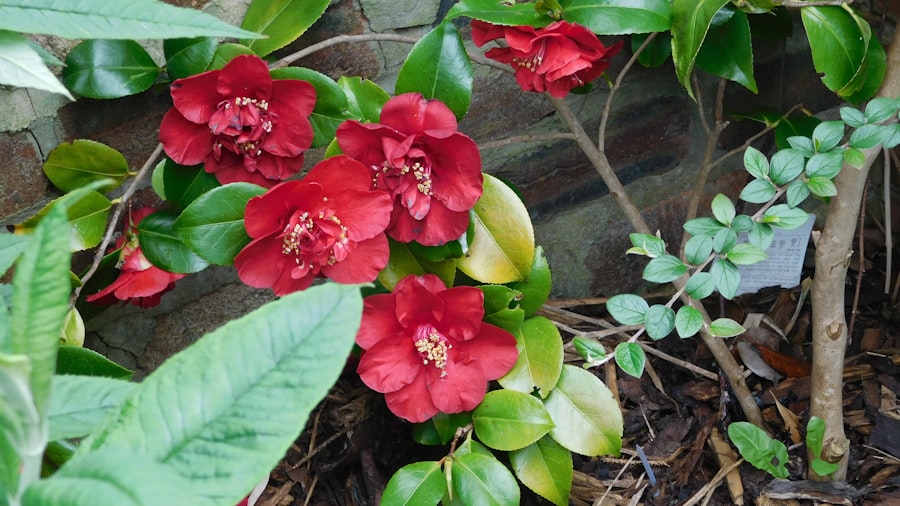
In addition to physical barriers, natural deterrents can be used to discourage chickens from entering flower beds. One effective method is to use strong-smelling plants and herbs, such as lavender, mint, or rosemary, which are known to repel chickens. These plants can be strategically placed around the perimeter of the flower bed or interplanted with flowers to create a natural barrier that chickens will find unappealing.
Another natural deterrent is the use of mulch or wood chips, which can be spread over the soil to make it less inviting for chickens to scratch and peck at. Mulch also helps to retain moisture and suppress weeds, providing additional benefits for the flower bed. Additionally, sprinkling cayenne pepper or garlic powder around the perimeter of the flower bed can deter chickens due to their strong scent and taste.
Training chickens to stay away
Training chickens to stay away from flower beds can be achieved through positive reinforcement and redirection. By providing alternative areas for chickens to forage and explore, such as a designated scratching area with loose soil and treats hidden within, they are less likely to seek out flower beds for food. Additionally, using a consistent verbal command, such as “no” or “away,” when chickens approach the flower bed can help to reinforce boundaries and discourage them from entering the area.
Another method of training chickens is through the use of visual deterrents, such as scarecrows or reflective objects, which can startle them and deter them from approaching the flower bed. It is important to note that training chickens requires patience and consistency, as it may take time for them to learn and adapt to new behaviors.
Providing alternative areas for chickens to roam
One effective way to prevent chickens from damaging flower beds is by providing them with alternative areas to roam and forage. This can be achieved by creating a designated chicken run or enclosure that is separate from the garden area. The chicken run should be spacious and include features such as perches, dust baths, and shade to keep chickens entertained and engaged.
Additionally, allowing chickens access to a diverse range of vegetation, such as grass, clover, and weeds, can help satisfy their natural foraging instincts and reduce their interest in flower beds. By providing alternative areas for chickens to roam, they are less likely to seek out gardens and flower beds for food and entertainment.
Regular maintenance and supervision
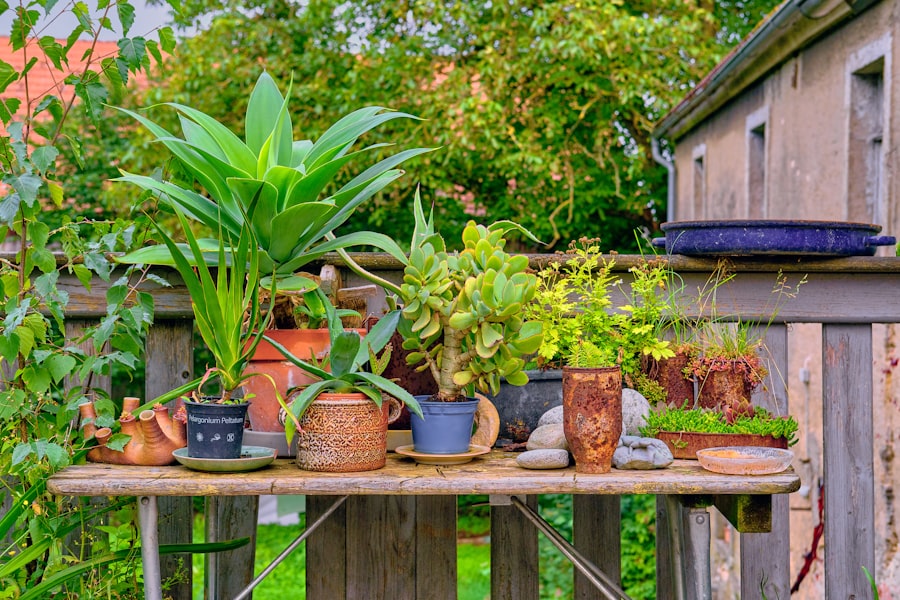
Regular Inspections and Maintenance
Regular maintenance and supervision are essential in preventing chickens from causing damage to flower beds. This includes regularly inspecting the perimeter of the garden for any signs of chicken activity, such as scratching or pecking, and addressing any potential entry points or weaknesses in barriers.
Removing Attractants
It is also important to remove any fallen fruit or seeds from the ground, as these can attract chickens and encourage them to explore the area further.
Supervising Chicken Behavior
Supervision is also crucial in ensuring that chickens are not accessing flower beds when unsupervised. By keeping an eye on their behavior and redirecting them when necessary, it becomes easier to reinforce boundaries and prevent damage to plants and flowers.
Seeking professional advice
If despite your best efforts, you find that chickens continue to cause damage to your flower beds, it may be beneficial to seek professional advice. A local agricultural extension office or poultry expert can provide valuable insights and recommendations for deterring chickens from garden areas. They may also be able to offer specific solutions tailored to your unique situation, such as installing motion-activated sprinklers or using sound deterrents.
Additionally, consulting with a professional can help identify any underlying issues that may be contributing to chicken behavior, such as inadequate nutrition or overcrowding. By seeking professional advice, you can gain a better understanding of how to effectively manage chicken behavior and protect your flower beds from damage. In conclusion, understanding the behavior of chickens is essential in finding effective solutions for keeping them away from flower beds.
By creating barriers, using natural deterrents, training chickens, providing alternative areas for them to roam, and maintaining regular supervision, it is possible to prevent damage to garden areas. Seeking professional advice can also provide valuable insights and recommendations for deterring chickens and protecting plants and flowers from harm. With careful planning and implementation of these strategies, it is possible to coexist harmoniously with chickens while preserving the beauty of your garden.
If you’re looking for ways to keep chickens out of your flower beds, you may also be interested in learning about how guinea fowl can live with chickens. This article from Poultry Wizard discusses the benefits and considerations of keeping guinea fowl alongside chickens, offering valuable insights for those looking to diversify their flock. Learn more about keeping guinea fowl with chickens here.
FAQs
What are some effective methods for keeping chickens out of my flower beds?
Some effective methods for keeping chickens out of flower beds include using physical barriers such as fences or chicken wire, using natural deterrents like citrus peels or coffee grounds, and training the chickens to stay out of the flower beds.
Are there any plants that can help repel chickens from flower beds?
Yes, there are some plants that can help repel chickens from flower beds, such as marigolds, lavender, and rosemary. These plants have strong scents that chickens tend to avoid.
Is it safe to use chicken wire or other physical barriers to keep chickens out of flower beds?
Yes, using chicken wire or other physical barriers to keep chickens out of flower beds is safe. Just be sure to secure the barriers properly to prevent any harm to the chickens.
Are there any natural deterrents that can be used to keep chickens out of flower beds?
Yes, there are several natural deterrents that can be used to keep chickens out of flower beds, such as citrus peels, coffee grounds, and cayenne pepper. These items have strong scents or tastes that chickens tend to avoid.
How can I train my chickens to stay out of my flower beds?
You can train your chickens to stay out of flower beds by using positive reinforcement, such as offering treats when they stay out of the flower beds, and by consistently redirecting them away from the flower beds when they approach. Consistency is key in training chickens.
Meet Walter, the feathered-friend fanatic of Florida! Nestled in the sunshine state, Walter struts through life with his feathered companions, clucking his way to happiness. With a coop that’s fancier than a five-star hotel, he’s the Don Juan of the chicken world. When he’s not teaching his hens to do the cha-cha, you’ll find him in a heated debate with his prized rooster, Sir Clucks-a-Lot. Walter’s poultry passion is no yolk; he’s the sunny-side-up guy you never knew you needed in your flock of friends!

